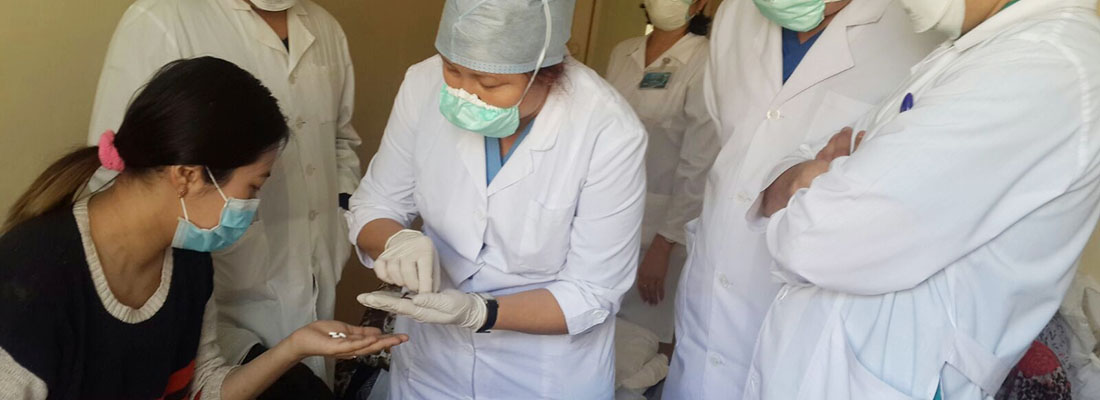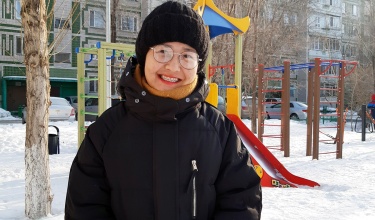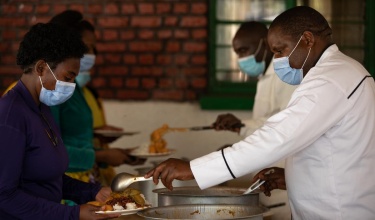

Kazakhstan
Kazakhstan
Kazakhstan, the former Soviet republic in Central Asia and the world’s largest landlocked country, has one of the world’s highest burdens of multidrug-resistant tuberculosis (MDR-TB).
MDR-TB is a particularly cruel and hard-to-treat version of TB, the world’s deadliest infectious disease. The spread of drug-resistant TB in Central Asia and Eastern Europe began to accelerate following the collapse of the Soviet Union in the early ‘90s. This undermined state-funded health care systems across the region, drained stocks of medicines, and left countless patients with poor care, creating conditions that exacerbated the spread of MDR-TB. Extremely poor and overcrowded prison conditions, in particular, fueled TB transmission and resulted in spread of the disease in home communities after prisoners with TB were released.
These factors and others resulted in high rates of MDR-TB across Kazakhstan, where more than a quarter of newly diagnosed TB patients and almost three-quarters of retreatment cases have developed into the more severe MDR-TB.
In 2009, the Kazakhstan Ministry of Health invited PIH to work with the government to provide proper care for patients with MDR-TB and the even more severe, extensively drug-resistant tuberculosis (XDR-TB), in prisons as well as the general population. PIH now is fighting TB across 10 of Kazakhstan’s administrative regions, or about 65 percent of the country.
National TB Program
PIH’s TB work in Kazakhstan began by providing high-quality technical assistance to the National Tuberculosis Control Program. That assistance has grown to support programmatic and clinical management of patients with drug-resistant tuberculosis, in both civil and prison sectors.
PIH has trained local health care workers, monitored MDR-TB treatment programs, and strengthened community-based models of TB care to improve treatment adherence, all focusing on meeting patients’ needs. PIH has contributed to the development of national policy documents and training materials on management of drug-resistant TB.
EndTB Partnership
In 2015, PIH co-founded the Expand New Drugs for TB partnership, which is known as endTB and& focuses on increasing access to new TB& medications and fostering innovation in& 17 countries. The $81.4-million project is a partnership between PIH; Médecins sans Frontières; Interactive Research & Development, a global health delivery group; and financial partner Unitaid. Nearly 700 MDR-TB patients have been enrolled in the endTB observational study in Kazakhstan alone. Using lessons learned from endTB, PIH also has contributed to development of the Ministry of Health’s decree on drug-resistant-TB and the national clinical protocol for XDR-TB.
HIV, Hepatitis, and Mental Health
Kazakhstan is on track for becoming an international global health model, not only for the treatment of drug-resistant TB, but also for addressing the illnesses that so often accompany it, including HIV, hepatitis B and C, mental illness, and substance abuse. Mental disorders are a leading cause of disability worldwide and frequently remain unaddressed and untreated due to a lack of access to care. Addressing mental illness and other complicated illnesses results in better adherence to TB treatment and better health outcomes.
To address mental disorders among MDR-TB patients, PIH in Kazakhstan and PIH’s cross-site mental health team started the Many Voices Collaborative in January 2020, to provide mental health care, monitoring, and social support to MDR-TB patients during the outpatient phase of their treatment. The project served 29 people in the first six months of 2020, achieving high adherence to TB treatment.
Video Treatment Support
To improve access and adherence to TB therapy and minimize barriers to care, PIH has implemented a new, patient-centered care method called video treatment support. The method allows drug-resistant-TB patients—especially those living in remote areas and facing socioeconomic barriers—to receive therapy via common video platforms, such as Skype or WhatsApp. Video treatment support has proven especially useful during times of lockdown, in particular during the COVID-19 pandemic.


